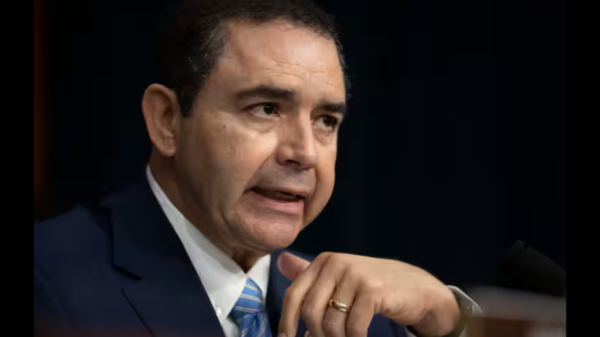
By Aarón Torres
AUSTIN — If the courts allow Texas’ sweeping immigration law to go into effect, Department of Public Safety troopers would focus on arresting migrants they see crossing the Rio Grande – and would largely enforce the law in counties along the southern border, according to a top DPS official.
Troopers would not check an individual’s immigration status during traffic stops or other encounters farther inland.
In addition, only adults would be arrested. Family units and children would not be charged with any of the crimes created by the new law but would instead be handed over to Border Patrol agents, said Lt. Chris Olivarez, a spokesman for the agency’s South Region.
“This law was not designed for interior enforcement,” Olivarez said. “This law is designed for border security along the river.”
Olivarez’s comments provided the first clarification by the DPS about how the state agency plans to enforce Senate Bill 4, which authorizes state and local police officers to arrest undocumented migrants. Texas has asked a federal appeals court to reinstate the law after a U.S. district judge found it to be unconstitutional in February.
After saying Friday that the agency would limit enforcement to counties along the border, Olivarez and Ericka Miller, a DPS spokeswoman, offered additional clarification Monday, saying the law would be enforced statewide.
For example, they said, if an individual is arrested for a violent crime and they are in the state illegally, they could be charged with one of the crimes under SB 4.
Individuals who are smuggled across the border could also be charged if DPS can show they crossed into Texas illegally, Olivarez said.
Before SB 4, those individuals would be handed over to Border Patrol agents.
“The bottom line is it can be and probably will be used anywhere where we can prove – obviously the burden of proof is on us – that that person has illegally crossed into the United States,” Miller said.
The law would also allow state district judges to order unauthorized migrants to be deported. The U.S. Justice Department and civil rights groups oppose the law, arguing that immigration enforcement is the federal government’s responsibility.
Last week, SB4 briefly went into effect after the U.S. Supreme Court gave the state permission to enforce the law and sent the matter back to the 5th Circuit Court of Appeals, which blocked SB4 about nine hours later.
The back-and-forth rulings had law enforcement agencies scrambling for advice on what to do, with some along the border ready to arrest migrants who they believed were violating the law and others holding off until they heard back from the DPS or Gov. Greg Abbott’s office.
The DPS did not enforce the law last week, Olivarez said.
The appeals court heard oral arguments last week on whether to continue blocking the law or let it go back into effect while the judges determine its constitutionality. Additional oral arguments are set for April 3 on the heart of the case — whether Texas can legally enforce SB 4.
DPS would be ready to enforce the law if the federal appeals court gives the state the green light and if the governor and attorney general’s office also give approval, Olivarez said. On Monday, Olivarez added that DPS would have to consult with other stakeholders, including local prosecutors and local other officials before enforcing the law.
The DPS will be ready to enforce the law if the state gets the green light from the court as well as from the governor and state attorney general’s office, Olivarez said.
The agency’s plans differ from what is allowed under SB4, which does not limit enforcement to counties along the U.S.-Mexico border.
The law also did not carve out protections for minors or family units, although it prohibits arresting individuals at schools, places of worship and facilities that care for survivors of sexual violence.
The DPS’ narrower enforcement plan applies only to state troopers, although the DPS plans to provide guidance to law enforcement agencies across Texas on how best to implement the law, Olivarez said.
“A lot of agencies along the border would seek guidance from us to see how we’re going to enforce it and then be able to apply the same guidance that we have to their agencies,” Olivarez said.
Kristin Etter, director of policy and legal services at the Texas Immigration Law Council, said the DPS policies don’t give her confidence about how SB4 is going to be enforced because such guidelines can change.
“Nothing requires them to stick with that policy,” she said. “It doesn’t really give me any peace of mind because policies aren’t permanent and require no change in law and are not binding.”
This story, originally published in The Dallas Morning News, is reprinted as part of a collaborative partnership between The Dallas Morning News and Texas Metro News. The partnership seeks to boost coverage of Dallas’ communities of color, particularly in southern Dallas.









You must be logged in to post a comment Login